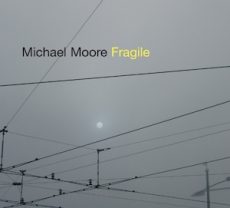
Daily Dose Of Jazz…
Michael Moore was born December 4, 1954 and raised in Eureka, California. He studied music at Humboldt State and in 1977 graduated from the New England Conservatory of Music, where he studied with Jaki Byard and Gunther Schuller, and was a classmate of Marty Ehrlich. He played in a variety of musical contexts, especially those in support of theatre and dance groups.
By 1982 he was a regular member of Misha Mengelberg’s Instant Composers Pool and had moved to Amsterdam. He was also a member of Georg Gräwe’s Grubenklang Orchester. Michael is one-third of the Clusone Trio with cellist Ernst Reijseger and drummer Han Bennink. Originally meant only to play a single date at a festival in Clusone, Italy, the trio toured irregularly for several years and recorded six albums, including one of freely-interpreted Irving Berlin compositions.
His debut recording as a leader was in 1992 but it was with 1994’s Chicoutimi that he began to earn recognition as a composer. The drummerless trio on this album had Fred Herschon piano, and bassist Mark Helias was inspired by the duo recordings of Lee Konitz and Gil Evans.
He put together a jazz quintet in 2005 and the album Osiris. In 2013, he performed with InstanPool, a group of international musicians making improved music and occasionally playing a composition.
Saxophonist and clarinetist Michael Moore, who has recorded twenty-two albums as a leader, continues his journey in performing and recording.
More Posts: bandleader,clarinet,history,instrumental,jazz,music,saxophone
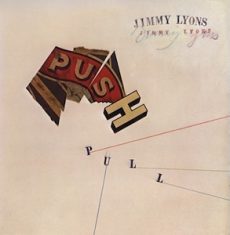
Daily Dose Of Jazz…
Jimmy Lyons was born on December 1, 1931 in Jersey City, New Jersey and raised there until the age of nine, when his mother moved the family to Harlem and then the Bronx in New York City. In the mid-1940s he got his first saxophone and took lessons from Buster Bailey.
After high school he was drafted into the United States Army and spent 21 months on infantry duty in Korea before spending a year playing in army bands. Once discharged he enrolled at New York University but by the end of the Fifties, Lyons was supporting his music by working for the United States Postal Service.
1960 saw Jimmy followed Archie Shepp into the saxophone role in the Cecil Taylor Unit. His post-Parker sound and strong melodic sense became a defining part of the sound of that group, from the 1962 Cafe Montmartre sessions onwards. During the 1970s, he ran his own ensemble, with bassoonist Karen Borca and percussionist Paul Murphy and was part of the loft jazz movement.
Lyons’ group and Cecil Taylor Unit continued a parallel development throughout the 1970s and 1980s, often involving the same musicians, including trumpeter Raphe Malik, bassist William Parker and percussionist Murphy.
In 1976, Lyons performed in a production of Adrienne Kennedy’s A Rat’s Mass directed by Cecil Taylor at La MaMa Experimental Theatre Club in the East Village of Manhattan.
Alto saxophonist Jimmy Lyons, who recorded eight albums as a leader, twenty-nine as a sideman and performed in the free jazz genre, died from lung cancer at the age of 54.
More Posts: bandleader,history,instrumental,jazz,music,saxophone
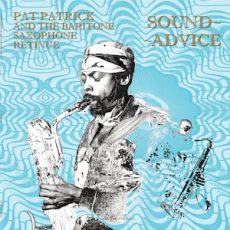
Daily Dose Of Jazz…
Pat Patrick was born Laurdine Kenneth Patrick Jr. on November 23, 1929 in East Moline, Illinois, to Laverne and Laurdine Kenneth Patrick. He first learned piano, drums, and trumpet as a child, and then switched to saxophones. He attended and studied music at DuSable High School in Chicago, Illinois where he met fellow students and future musicians bassist Richard Davis and saxophonists John Gilmore and Clifford Jordan. While still in school he was baritone saxophonist for the Regal Theater’s house band.
1949 saw Pat enrolled at Florida Agricultural and Mechanical University, but soon returned to Chicago to study at Wilson Junior College. Around 1950 he first played in one of Sun Ra’s bands as part of a trio and occasionally in Sun Ra’s Arkestra. By 1954 he became a regular member of the band. He moved to New York City in 1961, spent several years in the Arkestra’s communal residences in the East Village and Philadelphia, Pennsylvania.
He went on to play and record with John Coltrane, Blue Mitchell, Mongo Santamaría, Thelonious Monk, and Babatunde Olatunji. In 1972, Patrick co-founded the Baritone Saxophone Retinue, which featured Charles Davis and recorded two albums for Saturn Records.
He toured Europe with Sun Ra in 1970 and 1976, and was part of some other Arkestra performances in that decade, but he also devoted time to teaching at the State University of New York at Old Westbury.>
Baritone and alto saxophonist, bassist, flutist, percussionist and composer Pat Patrick, who is known for his 40-year association with Sun Ra, died from leukemia in Moline on December 31, 1991.
More Posts: bandleader,bass,composer,flute,history,instrumental,jazz,music,percussion,saxophone
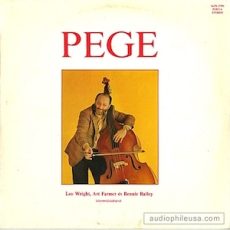
Daily Dose Of Jazz…
Aladar Pege was born on October 8, 1939 in Budapest, Hungary into a family of Gypsy musicians. He did not start playing the bass until age 15 but he quickly grabbed the attention of his teachers at the Bartók Bela Musical Training College. He studied classical music at Bartók, and worked in dance orchestras. He attended Liszt Ferenc Academy of Music and after graduating in 1969 he remained as a double bass teacher.
Forming a jazz quartet in 1963 Pege quickly gained international recognition and in 1964 saw him being named festival Virtuoso at a concert in Prague, Czechoslovakia. Reforming his jazz group in 1970 he appeared at the Montreux Jazz Festival where he was named Europe’s Best Soloist.
Between 1975 and 1978 he lived in Berlin, Germany playing bop and free jazz, but later returned home to teach. Aladar recorded with Walter Norris, and played concerts with Herbie Hancock, Art Farmer, Dexter Gordon and Mingus Dynasty. Sue Mingus, the widow of Charles Mingus, gave him one of her late husband’s instruments.
Double bassist Aladar Pege, who was called the Paganini of the bass, died at age 67 on September 23, 2006 in Budapest.
More Posts: bandleader,bass,history,instrumental,jazz,music
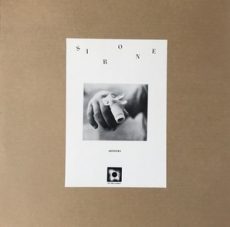
Daily Dose Of Jazz…
Norris Jones, better known as Sirone, was born September 28, 1940 in Atlanta, Georgia. He worked in Atlanta late in the 1950s and early in the 1960s with “The Group” alongside George Adams. He recorded with R&B musicians such as Sam Cooke and Smokey Robinson.
In 1966, in response to a call from Marion Brown, he moved to New York City, where he co-founded the Untraditional Jazz Improvisational Team with Dave Burrell. He also worked with Brown, Gato Barbieri, Pharoah Sanders, Noah Howard, Sonny Sharrock, Sunny Murray, Albert Ayler, Archie Shepp, and Sun Ra, as well as with John Coltrane when he was near the end of his career.
He co-founded the Revolutionary Ensemble with Leroy Jenkins and Frank Clayton in 1971. Jerome Cooper later replaced Clayton in the ensemble, which was active for much of the decade. The 1970s and early 1980s saw Sirone recording with Clifford Thornton, Roswell Rudd, Dewey Redman, Cecil Taylor, and Walt Dickerson.
In the 1980s, he was a member of Phalanx, a group with guitarist James “Blood” Ulmer, drummer Rashied Ali, and tenor saxophonist George Adams. From 1989, he lived in Berlin, Germany, where he was active with his group Concord with Ben Abarbanel-Wolff and Ulli Bartel.
Bassist, trombonist, and composer Sirone, who was involved in theater, film, and was a practicing Buddhist, died in Berlin, Germany on October 21, 2009, at the age of 69.
More Posts: bandleader,bass,composer,history,instrumental,jazz,music,trombone




